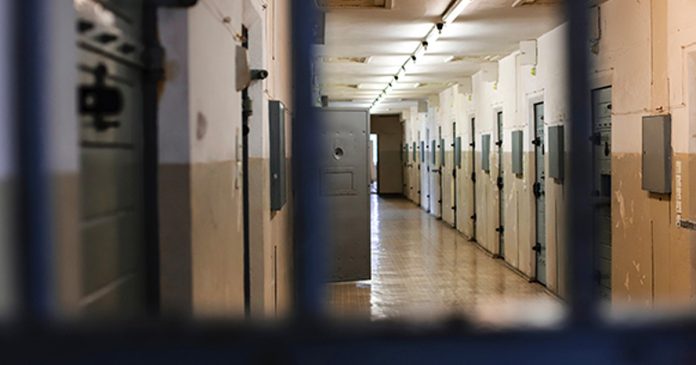Conservative MPs used their opposition day motion Thursday to press the Liberals to toughen the country’s bail system and demand the government reform the justice system through Bill C-75.
Passed into law back in 2019, that bill aimed at modernizing the bail system and reducing the overrepresentation of racialized people in prison.
“They went too far and they made the bail system too weak and now police officers are dying,” said Raquel Dancho, the Conservatives’ public safety critic, during a news conference.
Dancho says premiers and police chiefs are demanding action from Ottawa, and the party’s motion says the Liberal government must ensure that the justice system “puts the rights of law-abiding Canadians ahead of the rights of violent, repeat offenders.”
Randall McKenzie, who has been charged with first-degree murder in the fatal shooting of OPP Const. Grzegorz (Greg) Pierzchala on Dec. 27 west of Hagersville. Ont., was out on bail and under a lifetime order banning him from owning a firearm.
If any positive bail reform is to take place, however, the surety system must be tightened up and locked into the Justice Act.
Sureties are promises of money or property to secure an accused bail, which allegedly can be lost to the Crown if the suspect jumps bail.
Every senior OPP officer I spoke with, however — in uniform and/or retired — cannot recall a single surety of money or collateral ever being forfeited to the Crown in any of their cases.
But there is a name for it. It’s called estreatment.
In a letter some weeks ago to Prime Minister Justin Trudeau, provincial premiers unanimously called on the Liberal government in a letter to take “immediate action” on the bail system.
Justice Minister David Lametti said Thursday—the same day as the Conservatives’ opposition day motion—that he is giving “serious consideration” to reforming Canada’s bail laws in response to that request from premiers to make changes.
Naturally Lametti took an uncalled-for shot at the Tories’ motion, stating he is “disappointed” the Tories are “using tragedies to try to score political points” when the bail system is more complex than they suggest.
The letter from the premiers said there are a growing number of calls for changes to prevent accused people who are out on bail from committing further criminal acts.
The premiers called on the federal government to establish a “reverse onus” system for specific firearm offences that would require the person seeking bail to demonstrate why they should not remain behind bars.
The surety system, however, was never broached.
Since then, the suspected cop-killer, 25-year-old McKenzie, had an unknown surety connected to his bail, conditions which later broke in spades with the alleged first-degree murder of a young OPP officer on his first day patrolling solo.
The dispatch call that got him killed? A seemingly routine call about a car in the ditch.
Someone signed off on McKenzie’s bail after it was appealed and somehow then won, despite him having a long criminal record involving guns and an assault on police.
Is that person going to lose the surety they put up? The odds say no.
If the Liberals are going to make a success of bail reform, they must tackle the surety system and obviously toughen it up.
Make the surety co-signer has second thoughts about putting up his or her money, or the equivalent in property (i.e.; a home) because a toughened-up bail system takes estreatment seriously.
Without stringent and punishable surety conditions, the jailhouse cell might as well of unlocked, and criminals like Randall McKenzie given a gun as they walk out,
Save them the trouble.
